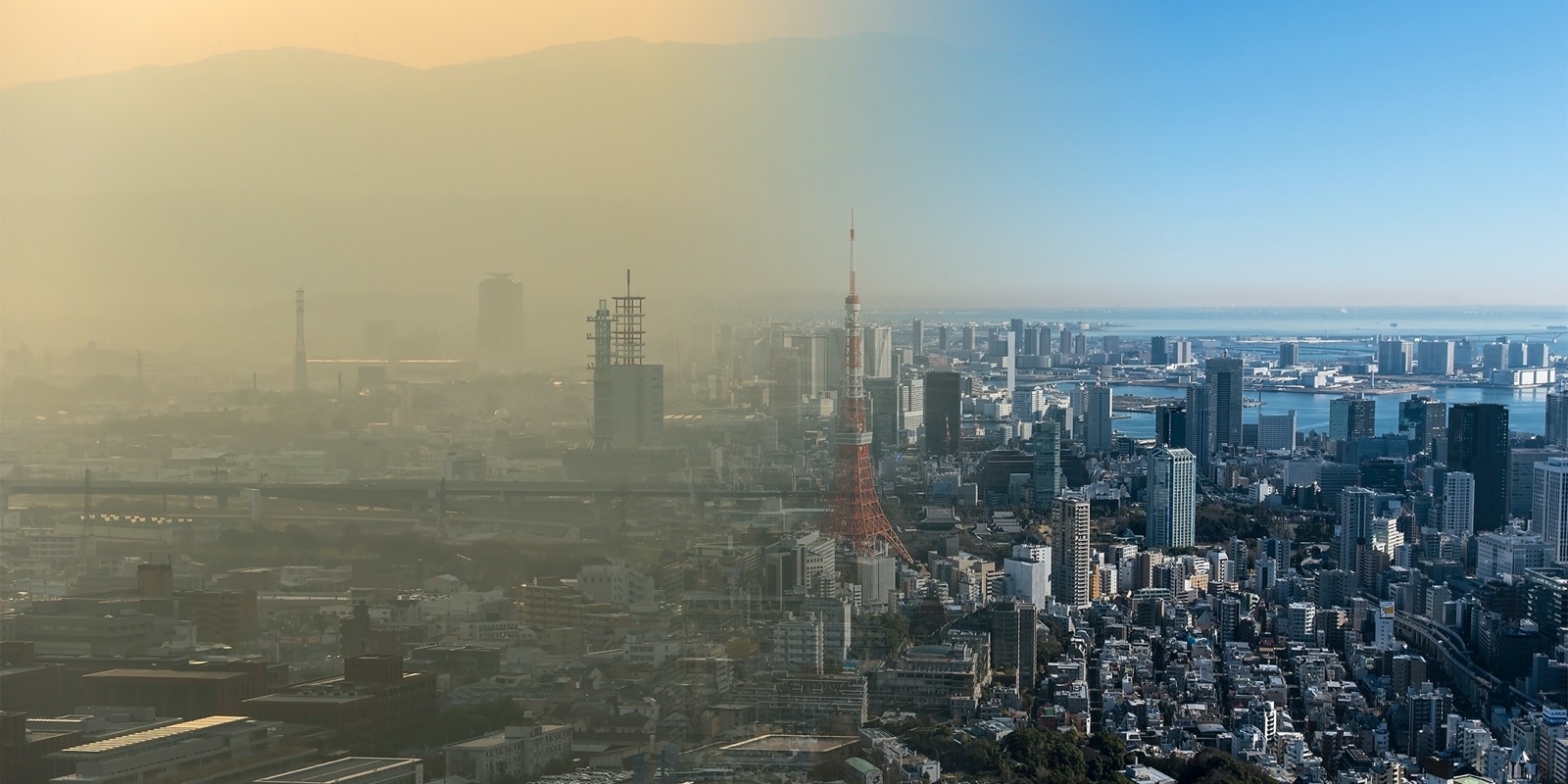Our planet may be fittingly compared to the 1994 film, Speed: A bomb is planted on a bus and rigged to explode when the bus slows to less than 80 kilometres per hour. The bus barrels through Los Angeles, hitting obstacles and endangering the lives of passengers and pedestrians until a solution is found.
There are real similarities between the Western socio-economic model and the bus in Speed. Our planet is experiencing wild, out-of-control development, increasing the distance between front and rear passengers. The wealth gap between the richest and poorest grows bigger, driven by exploitation. The engine—those institutions and people who drive this rapid development—enjoy the benefits of technology, but the rest do not. “Almost no one understands the vehicle’s whole operation mechanism and what exactly should be done to deactivate it”, analysts say, explaining that everything that is being done at the moment is an merely attempt to buy time and find a solution.
Our planet was in a dangerous situation long before the present crisis generated by COVID-19. This pandemic has thrown every unsolved problem, such as the climate crisis, into a dark corner, and we must decide whether we want a clean and safe planet, or a relaunch of the economy at any cost. The way in which we appear to be answering this question of how the balance should tilt is anything but surprising.
What remains certain is that these months, when the world has stopped, have given us a picture of a planet that we no longer enjoy, except perhaps in the memories of the oldest among us.
Our planet’s unknown beauty
Undoubtedly, we were bewildered at the sight of big cities, once hustling and bustling with life, being transformed into desolate spaces with empty parks and empty streets, as if pedestrians and cars had evaporated. But we were also amazed to see nature’s recovery during our quarantine: the Venetian canals’ clear water, where fish could be easily observed. Lions napping in the middle of a usually busy road in South Africa. Wild goats taking over the streets of Llandudno, in Wales. Thousands of endangered turtles returning to lay their eggs on a beach in India. There have been many surprising images that have shown us that nature is able to recover without man offering a helping hand, other than to get out of the way.
Belgian researchers have found that “seismic noise” (generated by vibrations within the earth’s crust) has been reduced by 30 to 50% as a third of the world’s population has been quarantined, and traffic and the use industrial machinery has decreased. The drop in the noise level was an opportunity for seismologists to focus on studying those phenomena that take place inside the earth’s crust, but which cannot usually be heard due to surface noise. A noise reduction of such magnitude is usually experienced briefly around Christmas, says Thomas Lecocq, a seismologist at the Royal Observatory of Belgium.
“I think the universe has given us an opportunity to hit the pause button, and see all the harm that we’ve actually been doing to the environment and how to get it right”, said Seth Bloomgarden, chairman of the Miami Surfrider Foundation, after seeing the ocean burst into colour, and clearer than he had seen in years.
Since the end of March, both China and Europe have experienced a significant reduction in the concentration of air pollutants. (More about this topic can be found in my article about air quality improvements: “COVID-19: Seeds of goodness in the midst of the pandemic”).
Both road and air travel have decreased sharply. The number of daily flights from Europe in March and April has fallen by about 90% over the last year, having a clear socio-economic impact, but also bringing environmental benefits—at least in the short term.
“The drop in emissions is global and unprecedented. Air pollution has plunged in most areas. Our response to the pandemic provides a glimpse of just how quickly we could clean our air with renewables”, argued Rob Jackson, the chair of Global Carbon Project. But Jackson has warned that these environmental gains are temporary, and that we cannot celebrate the emission decrease which led to “tens of millions of people losing their jobs”. He insisted that we should make systemic changes to our energy infrastructure, to prevent emissions from soaring again in the future.
The well-being of the planet versus economic health
COVID-19 has created the framework for a large-scale global economic crisis. (More about this topic can be found in my article “The coronavirus has been anything but a great equalizer: The impact of COVID-19 on the world’s poor”). On the other hand, although the pandemic has caused us to forget our old problems, several recent studies have warned that we do not have much time to counteract the consequences of climate change. In 2019, many extreme weather events hit the planet, leading to the displacement of 7 million people in the first half of the year alone.
We need to save both the environment and the economy. There are no simple solutions to achieving this. We are solely responsible for the spread of zoonotic diseases (transmitted from animal to human), points out an article published in UN News, which explains how fragile ecosystems bring people closer to each other, but are also dangerous for their health, as they come closer to wild animals.
Around 75% of new and infectious diseases are zoonotic, and about a billion cases of illness, and millions of deaths,occur every year from these diseases. At the same time, human activity has altered almost 75% of the earth’s surface, squeezing wildlife and nature into an ever-smaller corner of the planet.
This pandemic has been a wake-up call concerning the consequences of abusing the planet and our health for the sake of flourishing economies, writes Jonathan Watts in The Guardian. Watts recalls the flurry of zoonotic diseases we faced due to deforestation and illegal wildlife trafficking, but also due to pollution—which itself makes us sick, and kills us. Previous studies have shown that exposure to pollution dramatically increased the risk of death in the 2003 SARS outbreak.
However, “in the short term it would be dangerous to think that a downturn in economic activity is a benefit to nature,” warns Matt Walpole of Fauna and Flora International. While nature has been revived in many industrialised countries, the pandemic could pose a threat to nature in poorer countries, because there is less money for the conservation of endangered species, habitat protection, and an increased risk of locals compensating for their lower income with poaching and illegal logging.
Same crisis, different solutions
Once the pandemic is over, the climate alarm will flash as brightly as ever on the planet’s dashboard. Therefore, economic rescue plans should set the global economy on a path to decarbonisation, writes John Barry, a professor of economics at Queen’s University Belfast. Barry sees restarting the economic engines as a unique opportunity to create a more stable and equitable system. States could invest the money they now use to subsidise industry to finance renewable energy instead, or to buy oil and gas companies, keeping fuel reserves in the ground, writes Barry in an article that lists several ideas for what economic recovery after the pandemic should look like.
The funds that will be pumped into the economy will be a source of heated dispute between those who want to get the economy moving again, no matter the cost, and those who argue that we need to invest in an accelerated transition to a cleaner economy, says Steven Erlanger in an analysis published by The New York Times.
This will be the battle whose “outcome will define the post-pandemic world”, argues economist Jean Pisany Ferry.
In December 2019, the European Commission, led by Ursula von der Leyen, adopted the document “The European Green Deal”, a strategy with the most ambitious anti-pollution goals in history. Von der Leyen has recently reiterated her desire to implement environmental policies as the basis of economic recovery in Europe.
However, this goal is not at all easy to achieve, says Frans Timmermans, First Vice-President of the European Commission: “The climate crisis that was upon us before the corona crisis is still there and has lost none of its urgency”, he said. “But in the foreseeable future it will no longer rank first on people’s priority list. It will tumble down”, Timmermans stated, explaining that politicians will have to choose between managing the crisis in the long run and making short-term election gains. They will be under pressure from citizens who are not satisfied with the economic downturn.
Diederik Samsom, Mr. Timmermans’ head of cabinet, is working to revise the Green Deal project and says that “there is a demand for a green recovery, but also a demand for jobs and growth’’, and the key to success lies in reconciling these two needs.
The answers are not simple
The crisis triggered by COVID-19 does not provide answers to the dilemmas we are facing, but it does make room for reflection on how to effectively solve these complex and confusing problems.
In just 100 days, the world has changed more than we could have anticipated—democratic governments have drastically reduced freedoms, austere leaders have allocated huge sums of money to health spending, and our political focus has shifted from individual good to the collective welfare, writes journalist Jonathan Watts in an article for The Guardian.
The incredible thing is that, while we were convinced that the economy could not slow down, we began to notice that there actually is “a bright red alarm signal, next to a large steel lever” that could be pulled and the runaway train of development would stop, says French philosopher Bruno Latour. On the other hand, no matter how happy we are to reduce greenhouse gas emissions, it is unrealistic to expect that this trend will last.
Specialists from the Scripps Institution of Oceanography say that a 10% decline in global fossil fuel use needs to be sustained for over a year for this drop to be clearly reflected in a diminished level of carbon dioxide.
But for this to happen, it is necessary to build a different economy, one which takes into account the health of our planet more than it did in the past. After the pandemic has shown us that slowing down is possible—also showing us the cost of slowing down—bouncing back will be our next goal. However, doing so irresponsibly could reverse all the positive things that have been happening in the environment.
On the one hand, the pandemic could pave the way for renewable energy production, at least in the United States, writes The New York Times. Government projections have shown that the country was on the verge of producing more electricity from renewable sources than from coal that year. Such a roll-out would have seemed unbelievable a decade ago, when coal generated half of the nation’s electricity. The projection was that, in 2020, coal would provide only 19% of U.S. electricity, which is a very good news for the environment. The decline of the coal industry has already led to a 15% drop in carbon dioxide emissions since 2005, and emissions would decrease by another 11% by the end of the year, the largest drop in the last 70 years, according to data from the US Energy Information Administration.
At the same time, in Europe and beyond, the pandemic is likely to strengthen opposition to environmental policies, says Charles Grant, director of the Centre for European Reform. The opposition comes from both populist leaders who will try to gain electoral capital by rejecting the idea that we are threatened by the climate crisis, and from voters whose living standards will drop significantly as a result of the COVID-19 crisis, Grant said. What will states finally choose: transitioning to a green economy, or preserving their status quo?
It is said desperate times call for desperate measures. On the other hand, simultaneously managing a heavily affected economy and an environmental crisis that we still somehow believe we can afford to put off, could push us to act either as firefighters or as architects, believes economist Pisani-Ferry. The architect’s path would indeed prove much more attractive. It would protect us from the fire long before our home has been engulfed in flames.
Carmen Lăiu is a writer for ST Network and Semnele timpului.



















